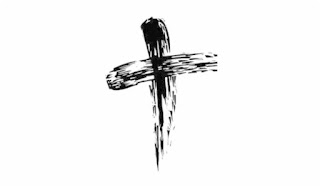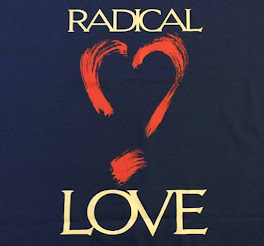On the face of the readings, the theme is pretty
simple: Do this, don’t do that. Do to others as you would have them do to
you, do not judge, and you will not be judged; do not condemn, and you
will not be condemned, says Jesus*, and
all we have to do is love the unlovable and forgive the unforgivable. Sure, we’ve
heard it all before but not so easy to practice, at least for me.
The beginning point for this week’s lesson is Joseph forgiving his
brothers. It is quite a dramatic story especially if you know the history that came before [Genesis 37, 39-50]. Joseph is the youngest, the favorite and
best-loved of his father, the tattletale, the dreamer of grandiose dreams, an
all-around annoying little brother which caused the older brothers to successfully
plot to be rid of him. It is a compelling account of the stuff of novels, films, and
Broadway musicals. But perhaps in the abstract, we only consider it as a nice
piece of holy fiction that doesn’t have much impact on our life and times. Yet, imagine being Joseph, could I/could you Love your enemies, do good to those who hate you...
A priest friend recounted a TV interview he saw with a man
who had committed his life to working with young offenders. The man’s son had been recently murdered by such a person and the interviewer asked if he had
forgiven the murderer. He said that he had forgiven him because the killer was
just the kind of young person he was trying to help. Is that within or beyond
my capacity to do, especially if that was my child? I seriously wonder, and question my faith, and my commitment.
It isn’t that Jesus is promoting a dismissal of appropriate blame and its
consequences. Rather, as we simply do not and will not know what transpires
between God and the one who offended, we cannot, should not, must not assume
the final verdict of God who knows what changes of heart and soul
occur. It’s God’s job, not mine, to sort out the truly wicked evildoers
and the truly righteous and faithful, and all in-between, and to judge,
punish/reward accordingly. Earthly
legal systems do what they must and mostly should; in the Earthly realm of Christ, we
are called to love and forgive especially those who are the most difficult.
Yet before we
can approach and attempt this challenging kind of love and forgiveness, we have to
do some internal, self-directed work to believe – and accept – that God
truly loves and forgives us, you, me. That
is the hardest work of all, and it is where we must begin. For when we let go of judging ourselves, or at least begin to want to reduce and redirect it, knowing and believing how God loves and forgives us, we can be opened to love and forgive others more easily.
In other words, I try to always remember that the measure I give out in
this life is the measure I’ll get back in the next. Remember the Lord’s Prayer. Spend
some time with it this week to read what it says, and go beyond the familiar syllables
in recitation to clearer understanding. Look especially at: forgive us our trespasses (sins), AS We forgive those who trespass against Us. Hear and feel deeply what it is we are truly asking for. Rephrasing might change the perspective a bit and perhaps bring some discomfort if we say: forgive me my trespasses in the same way that I forgive them. It's a radical departure to how we generally think and feel about loving and forgiving those we usually want nothing to do with. Or, honestly, those we secretly love to hate. Be one to love first, forgive next. Oh, and the extra hard part: don't expect any gratitude or appreciation in return. The practice of radical love and forgiveness feels like a long road in this life, but it is the shortest path to receiving immeasurable love and forgiveness in the next.
*Jesus also said
this week: If anyone strikes you on the cheek, offer the other also. Walter Wink, [1935-2012] was
a theologian and Professor Emeritus of Biblical Interpretation at Auburn
Theological Seminary in New York City. His easily-read article explains
much more about this in a useful context. He said, in part:
"If anyone strikes you on the right cheek, turn the other also." Why the right cheek? A blow by the right fist in that right-handed world would land on the left cheek of the opponent. An open-handed slap would also strike the left cheek. To hit the right cheek with a fist would require using the left hand, but in that society the left hand was used only for unclean tasks. Even to gesture with the left hand at Qumran carried the penalty of ten days' penance. The only way one could naturally strike the right cheek with the right hand would be with the back of the hand. We are dealing here with insult, not a fistfight. The intention is clearly not to injure but to humiliate, to put someone in his or her place...A backhand slap was the usual way of admonishing inferiors. Masters backhanded slaves; husbands, wives; parents, children; men, women; Romans, Jews. We have here a set of unequal relations, in each of which retaliation would be suicidal. The only normal response would be cowering submission. Click here for: Walter Wink on Turn the Other Cheek and beyond.
LET US, GOD’S PEOPLE, PRAY
Leader: ~ O God, our Stronghold and our Refuge, grant
us the courage and the strength of faith to trust in, and accept as true, Your
all-encompassing love for ourselves. Release us from judgment and anger that we
may grant the same love, mercy, and compassion to all others as we receive from
You.
O Lord, Most
High
RESPONSE:
Urge our hearts to love and forgive
~ O God, our Stronghold and our Refuge, impel the hearts, minds,
and souls of all who govern across every location on this Earth, to act always
with the highest ethical, moral, and spiritual intent for those they
lead. We pray especially for: add your own petitions
O Lord, Most
High
Urge our hearts to love and forgive
~ O God, our Stronghold and our Refuge, ease the
distress for those who are poor in health, in spirit, or in the basic
needs of life, and for those who selflessly aid and comfort them. We now
join our voices to pray aloud for those in need… add your own petitions
O Lord, Most
High
Urge
our hearts to love and forgive
~ O God, our Stronghold and our Refuge, soften the grief
for all who are bereft, as our beloved, raised to new life in glory and joy,
are now with You for all eternity. We pray especially for... add your
own petitions
O Lord, Most
High
Urge
our hearts to love and forgive
~ O God, our Stronghold and our Refuge, we pause in
this moment to offer You our other heartfelt thanksgivings, intercessions,
petitions, and memorials, aloud or silently… add your own petitions
O Lord, Most
High
Urge
our hearts to love and forgive
~ O God, our Stronghold and our Refuge, grant extra
blessings for those who lead us in Your Church as they inspire and encourage us,
through Your Word and Sacraments, to take delight in and commit our ways and
our lives entirely to You. We pray especially for: add
your own petitions
O Lord, Most
High
Urge
our hearts to love and forgive
The Celebrant adds: Merciful, Benevolent God, relieve us of
distress, frustration, and rage over the wickedness of others, and leave that
judgment to You. Heighten our desire to be as generous with our love and
forgiveness in this life, as You have promised to return to us in the next. We
ask through Jesus, our Risen Christ; and the Holy Spirit, the Breath of our
Souls; who together with You, are God Almighty, now and forever. Amen.





